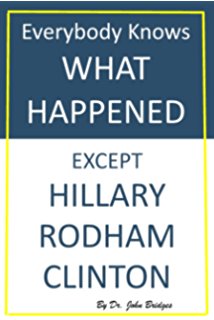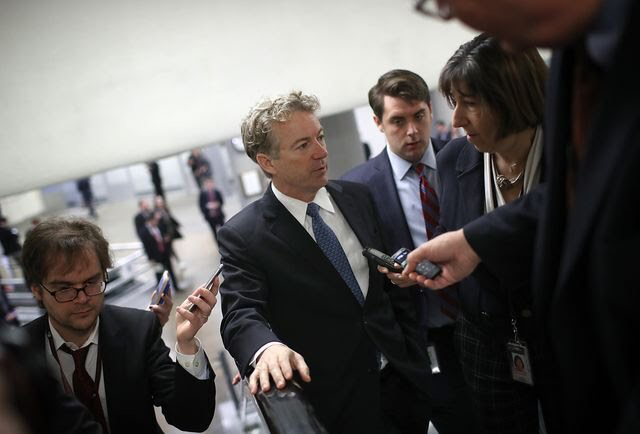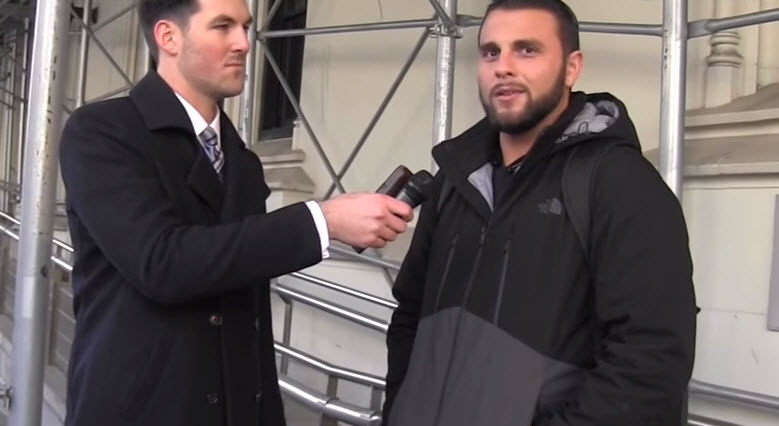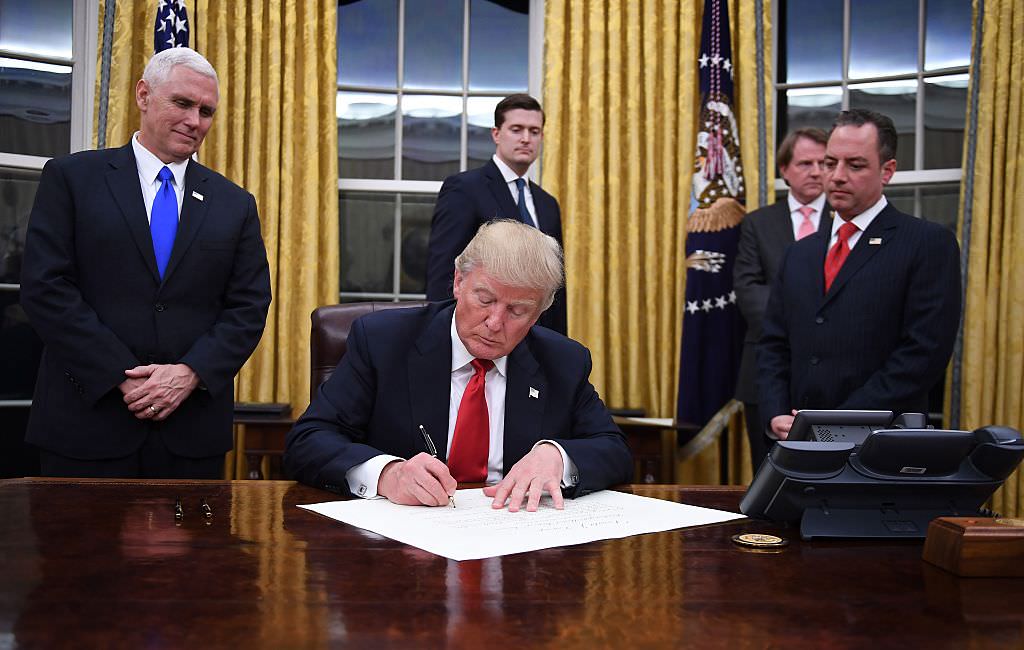|
In the wake of the tragic school shooting in Parkland, FL, I've been thinking a lot about the issue of guns in this country, which is really, in some ways, unique. I'd like to say something first to conservatives and then to liberals. For ConservativesIt's time to take our positions in this argument to the "next level." So many of us relegate ourselves to grossly oversimplified clichés and conspiracies that range from misleading to wrong to simply unhelpful. They don't actually do anything to further healthy debate. For example, how many times have we or someone around us said something like, "Guns don't kill people; people kill people"? There's a kernel of truth to this--but only a kernel. That's why it's misleading. Kernels of truth don't bring us closer to solutions. There are logical fallacies with all of these clichés too. For instance, to the extent that guns don't kill people, nuclear bombs don't either. As with guns, nuclear bombs don't harm anyone until people decide to use them. Should this then be an argument that all 325 million Americans should have their own nuclear arsenals? Of course not. There's more to it than these little clichés indicate, so stop undercutting our own arguments by tossing these soundbites around. Frankly, it's simpleminded to begin and end your argument with an overworked cliché. Another common one: "Guns are the private citizen's fundamental protection from an overbearing government." Saying this makes you immediately sound as though you have no credibility to the very people you're trying to convince. Practically, the government kills FAR fewer Americans than private citizens kill. More often than not, the government--via the intelligence community, law enforcement, the military, etc.--is in the business of saving lives, not taking them. There's also a stone cold practical reality here: When the Second Amendment was written, the arms that the citizens owned were the same ones that the government owned. When you joined the military, you may well have simply grabbed your own musket and headed off to fight. In case we've failed to notice two centuries of changes, things are a little different now. If the government decided to come for you today, you wouldn't be facing muskets. The balance of power of weaponry between government and citizenry has changed dramatically--in the favor of the government. Guns no longer offer us protection from the government. No matter how many rifles, shotguns, pistols, or AR-15's you own, you'd be powerless against tanks, heavy armor, missiles, jets, 50-caliber armor-piercing machine guns, and various types of chain guns that can lay down over 80 pieces of lead every single second in your direction. Your best bet would simply be to lay down your guns and surrender. So, seriously, let's drop this impractical, conspiratorial argument. The days when it applied have come and gone. (Besides, considering all the murders and terrorism that take place today, there are probably more important threats to protect ourselves from than a federal government that kills almost no one, so let's stop defeating ourselves by repeating this conspiracy theory.)
Finally, we call ourselves "strict constructionists"--meaning that we see ourselves as the side that literally interprets the constitution, relative to the liberals who take all sorts of liberties with it.
Let's look at that through the lens of our prior nuclear weapons example. The Second Amendment simply says that we have the right to keep and bear "arms." It doesn't define that term, however, and never mentions "guns," which are just one type of arm. Therein lies the difficulty in always strictly applying something written in the 18th Century to events in the 21st Century. Most of us conservatives agree that private citizens should not be able to own nuclear weapons--or cruise missiles or any other arms like these. How many of you have a confrontational relationship with your neighbors but would still be perfectly happy with their having nuclear bombs, cruise missiles, and tanks sitting in their backyard pointed at your house? I didn't think so. We also agree that people who've committed mass murder with a gun shouldn't be able to buy anymore guns. (Yes, one mass murder each is probably enough, right?)
Wait though: In agreeing to prevent private ownership of nuclear weapons and to prevent mass murderers from buying anymore guns, we're taking a less-than-strict interpretation of the Second Amendment. It simply says "arms," not guns.
It also says that our right "shall not be infringed"; it doesn't say "shall not be infringed UNLESS..." So, by default, we're already not strictly interpreting the Second Amendment. It's intellectually dishonest to say that restricting gun ownership in any way is a violation of the Second Amendment but that restrictions on nuclear bombs, felons, children, etc. aren't. Let's be honest about that: It's our interpretation. It isn't an objective fact. The truth of the matter is that we have no idea how people like George Washington would have reacted to nuclear bombs, mass shootings of children in schools, etc. We can have a more effective place in this debate if we begin by being honest with each other and with ourselves. Where does this leave us? Frankly, it probably leaves us with the reality that some sort of restrictions are justified and, regardless of justification, are coming. That should be clear: both at the state and federal levels, restrictions in some form or fashion are coming. If we scratch and fight against ALL reforms, then all we're doing is simply locking ourselves out of having any influence in the discussion since public opinion has turned so decisively against us. Policymakers are going to start responding to that change in opinion. If we drop our clichés and shaky, convenient Second Amendment arguments, then we could earn ourselves a seat at the table in these debates and have real impact on the types of reforms that are eventually enacted. For Liberals
Get off your moral high horses. I mean, seriously, what's wrong with you?
The current gun debate highlights very well why so many conservatives have given up trying to discuss difficult issues with you: you turn every issue into both an indictment and a conviction of someone's morals. Christian opposition to gay marriage? Immoral and homophobic. Republican support for corporate tax cuts? Immoral and corrupt. GOP efforts to reduce the cost of our welfare system? Immoral and cold. Conservative concerns about abortions--especially certain types of abortions? Immoral and sexist. Anyone who disagrees with you about anything at all? Immoral and unethical. (I mean, there couldn't possibly be any other reasons for any of these positions, could there?) The same goes for Second Amendment rights. Those who support them? Immoral--murderers even. The NRA? They're murderers. (Because of course they are.) Marco Rubio? He's a murderer too. (Didn't you know?) Anyone who receives NRA donations? You guessed it: murderers. (Because the cash that most of us use is harmless, but NRA cash is that rare kind that kills people. New cliché for us: "People don't kill people; NRA cash kills people." Quick! Someone put that on a sign and go march around outside in the street with it!) How can you expect anyone to engage you in a healthy discussion when you're asking them to wade through a bunch of water that you've already poisoned? If they make it through, then they still have to yell up at you on top of your ivory tower. That's no way to have a productive discussion. Stop it. When you encounter clichés and conspiracies from the Right, you have an opportunity to listen, to try to understand, and to address them factually as I've just done. Instead, you ridicule and belittle. It's time for some real soul-searching on this. As I said above, I agree that something must be done. Should we take away everyone's guns? Absolutely not. That is indisputably unconstitutional, and even if the government ordered us to turn them over, I and many others would refuse. Are there some reasonable, less Draconian restrictions that may be helpful though? Yes, absolutely. Be intellectually honest about it though: The cold, hard reality is that none of the restrictions under discussion are likely to have much impact on shootings. --Enact a "waiting period" after gun purchases? (Most people who shoot another person have had guns for months or even years. A waiting period won't make much difference.) --Ban bump stocks? (Sure, but how many shootings involve the use of bump stocks? Las Vegas? Which others? Not many. It also isn't clear how much difference not having a bump stock would have made in Las Vegas. The shooter would have fired fewer rounds for sure, but his fire would also have been more accurate.) --Prevent mentally ill people from buying guns? (I agree it should be done, but let's be honest: How many shooters have mental illness diagnoses? Very few.) --Limit gun buying only to those over the age of 21? (Most shooters are over 21. Las Vegas anyone?) --Ban semi-automatic weapons such as the AR-15. (Sure, but how many shootings involve semi-automatic weapons? Most don't.) That's really where we are. There are 350 million guns in this country, so restrictions like those can really only nip around the edges. They can't fundamentally change the reality here. There's this mythical idea floating around that if we just "ban guns," then we'll all live happily ever after, perhaps even while holding hands. Some things aren't very clear, but this is: That wouldn't solve the problem. Sure, it might help some, but it won't solve the problem completely or even come close. One unfortunate reality of going too far with restrictions can be seen in your (liberals') own arguments on another issue: legalizing certain drugs. The argument goes that legalizing these drugs undercuts black markets for drugs and increases government tax revenue. That can be applied to guns as well: banning them would lead to the creation of a healthy black market for guns and would deprive governments of some revenue. So the issue really is complicated. Let's stop pretending that it's as simple as just defeating conservatives and getting some sort of severe restrictions on gun ownership. It wouldn't work out quite like that. For everyone
Our focus right now is on "supply side" (gun) solutions. Too many guns? Too few? Too many restrictions? Too few? This is understandable. Guns drive ratings, so the media has much incentive to harp on them. The Second Amendment mentions arms (which we limit to "guns" today), so it makes sense to talk about guns. These mass murderers are using guns, so, again, let's talk about guns, right? Wrong. I do believe that some restrictions on gun ownership are overdue. We should expand background checks. We should bar mentally ill people from buying guns. We should ban bump stocks. That said, those reforms would have only a very, very small impact. Is it worth it? Of course. I'd never tell a parent that his murdered child was only one and that one wasn't worth saving. All are worth saving. Something feels missing though. Is saving just a few the best we can do? Well, if we're only focused on "guns," then, yes, it is. Saving only a few is the best we can hope for. Our focus should be on the other side: defense. Another cliché goes like this: "The best defense is a good offense." In real life, that usually isn't true. That best defense in most things in life is simply good defense. (Gosh, we humans love our clichés though! It's hard to let go of them.) The truth of the matter is that regardless of what we do with guns, schools will remain extremely soft, high visibility, undefended targets for people who have a bone to pick with society. An AR-15 isn't necessary to wreak havoc. A calm person with a revolver could walk into a school with six bullets and leave six young bodies in his wake. It would be small comfort to those parents to say, "Yes, but you should feel better. We banned AR-15's, so thankfully only yours and five others were killed. It could have been more. Pat me on the back now please." That wouldn't go over well, but that's, in effect, what some the proposals mean. My proposal Yes, enact reasonable restrictions on gun ownership like those I just mentioned. Don't kid yourselves though: It's time to focus on defense. The only way to stop these things on school campuses is to defend school campuses. The way to prevent a soft target from being attacked is to make it no longer a soft target. This is, quite honestly, very basic. I don't know the right way to handle this, but I do know that this is where we should be looking. You could arm a certain proportion of teachers. You could hire contracted security officers. You could have local police and sheriff's departments pick up security duty at schools. You could set up trained volunteer security units (like trained volunteer fire departments). You could send all kids, teachers, coaches, etc. through metal detectors before they're allowed onto campuses. There are any number of proposals with varying costs and other pros and cons. Some may not work at all. Some may work quite well. Some may not be feasible, while others certainly are. This is were we have to look though. We have to make schools harder targets. Is it sad that we need to do this? Of course it is, but it would be even sadder to refuse to do this either for ideological reasons or simply because we don't think we ought to have to "in this country." The fact of the matter is that this country has a problem with gun violence, and the best way to combat it is to make common targets much more difficult to hit. No matter the restrictions placed on gun ownership, if someone really wants to carry out a shooting at a school, they'll be able to do so--unless they can't. They'll be able to do so unless schools' defenses are such that it's just far too difficult. We can't completely keep dangerous people from getting guns, so we have to make sure that when--yes, when--they do, they're not able to attack our schools with them. That's where real solutions lie. No, it won't win ideological fights. No, it won't drive media ratings. It will save lives though. Follow libertyLOL on your favorite social media sites:FacebookYoutube Tumblr Pintrest Countable: Government Made Simple Steemit blog on a blockchain Patreon Gab.ai libertyLOL's Liberty Blog RSS Feed We also run a couple twitterbots which provide great quotes and book suggestions: Murray Rothbard Suggests Tom Woods Suggests Jason Stapleton Suggests Progressive Contradictions Taxation is Theft Bot
0 Comments
Again, why are we breaking news on a Friday if it's 'significant'? Everyone knows that Friday afternoons are reserved for stuff we want headlines on but no real in-depth coverage. Most reporters have already head home for the weekend.
The indictment can be downloaded here and reads: From in or around 2014 to the present, Defendants knowingly and intentionally conspired with each other (and with persons known and unknown to the Grand Jury) to defraud the United States by impairing, obstructing, and defeating the lawful functions of the government through fraud and deceit for the purpose of interfering with the U.S. political and electoral processes, including the presidential election of 2016. Unfortunately, No one will actually read the indictment and compare it to what Already Occurs in every election.
There's no value in doing so. Must keep the Left/Right arguing with each other at all costs. Leftists will claim "It is definitely starting to look like we have an illegitimate president" and Righties will proclaim 'Fake news!"
As an Intelligence Officer, I will tell you that election influence operations are the norm. It would actually be highly exceptional if an election wasn't being influenced by outside countries, non-profits, and donations. This only occurs in certain non-descript countries of zero geopolitical value which are few and far between. Here are the charges:
These are the charges? On a scale of Influence-Operations up to Hacking-the-Election-OMG-Trump-is-Illegitimate, this represents child play that occurs in Every. Election. In. Every. Country. That some Russians donated funding in order to influence an election should not be a surprise. We do the same thing. Private citizens do the same thing. George Soros has done this. In leaked documents from his Open Society Foundation George Soros even attempted to manipulate the 2016 ElectionWill Special Counsel also indict Soros? Will the EU nations bring an indictment against him and his 'Election Hacking"? That's the standard that Special Counsel Robert Mueller is attempting to establish in this indictment. Additionally, bringing charges against foreign nationals is of no-value in the real world. Russia isn't going to find these defendants and ship them over. Quite the opposite, they're probably getting medals. Russia sincerely believed Hillary would go to war with them. Her record is clear on Russia So we're not going to actually take the Russians to court, but by indicting them, Mueller can continue the narrative that this election was "different" or "illegitimate" or even "Hillary should have won" (which no one actually believes).
Who knows. Maybe it's a new world.
Maybe these Russians are all 'guilty' and now 'election influence' is no longer going to be part of our status quo. Not likely, but if so, will you hold the U.S. federal government to these same standards when we meddle in others' elections? Why or why not? How is it different? Should we just defund the Central Intelligence Agency now? This is part of the CIA's specific mission. We. Are. Not. Angels. How far back in history should we look when determining guilt of this occurring in the past? Follow libertyLOL on your favorite social media sites:FacebookYoutube Tumblr Pintrest Countable: Government Made Simple Steemit blog on a blockchain Patreon Gab.ai libertyLOL's Liberty Blog RSS Feed We also run a couple twitterbots which provide great quotes and book suggestions: Murray Rothbard Suggests Tom Woods Suggests Jason Stapleton Suggests Progressive Contradictions MORE FROM LIBERTYLOL:
Second federal judge blocks move to end DACA; Judicial Activism against an Unconstitutional Law2/14/2018 Only in America could the mainstream media call those who want strengthened borders "Racists" and "Xenophobes" while those who are here illegally are referred to as "Dreamers". If you aren't real sure why the courts keep blocking the Trump Administration's attempts to shut down the Deferred Action for Childhood Arrivals (DACA) program, let me catch you up. The entire DACA debate in a nutshell - It's not that the courts believe the Trump Administration can'tend the program. The courts believe the administration does have this right, this ability. The courts just want to make sure there's a good reason behind it. As if, the executive branch has to all-of-a-sudden provide justification in form of a White Paper, hand-deliver this to the judicial branch and wait around for permission to be given. Just as the Framer's intended. No, this is not one of those 'checks and balances' we learned about in 5th grade Civics class. "Defendants indisputably can end the DACA program," Garaufis wrote, referring to the Trump administration. "The question before the court is thus not whether defendants could end the DACA program, but whether they offered legally adequate reasons for doing so. Based on its review of the record before it, the court concludes that defendants have not done so." The judge goes on to cite a "recurring, redundant drumbeat of anti-Latino commentary". To be fair, Trump definitely capitalized on the drug problem, the gang problem and national headlines of illegals killing Americans (after being deported many times). This is politics. This is a candidate firing up a base. Now, if you read a lot of CNN, you might think that "We're getting a lot of drug dealers and gang members from Mexico; They're not sending us their best and brightest" is anti-Latino. It's not. "Today's ruling shows that courts across the country agree that Trump's termination of DACA was not just immoral, but unlawful as well," said Karen Tumlin of the National Immigration Law Center. So the Justice System is also the Morality Police, now? Oh yeah, Federalist Papers Essay #82 regarding the authority of the judicial systems. I'll have to refresh myself up on the morality section. When you have judges who legislate morality from the bench, your judicial system is screwed. They are supposed to be partial only to the Constitution. The Justice Department said it maintains that the administration acted "within its lawful authority" in deciding to end DACA and will "vigorously defend this position." Just to recap, the government has very few purposes in our life. It's purpose is to defend Life, Liberty, and Property. If the President decides that droves of foreign nationals, who don't share our western ideals of liberty and freedom, are a threat to "Life, Liberty, and Property", then it's incumbent upon his oath of office to make that decision. This week the Supreme Court is set to meet behind closed doors to discuss whether to take up the Trump administration's appeal of the related case. Spoiler Alert: They Won't. The Supreme Court is very selective on which cases it takes. And when it does take a case of national importance, you will be sure that the legal argument examined will be some tiny nuance within the case, not the hallmark of the case itself. With obstructionist judges who act upon partisan lines, the future is bleak for the Trump Administration. If you feel very passionate about DACA, let's rally support and create the law, legally. Last September, Economic Freedom of the World was released, which was sort of like Christmas for wonks who follow international economic policy. I eagerly combed through that report, which (predictably) had Hong Kong and Singapore as the top two jurisdictions. I was glad to see that the United States climbed to #11. The good news is that America had dropped as low as #18, so we’ve been improving the past few years. The bad news is that the U.S. used to be a top-5 country in the 1980s and 1990s. But let’s set aside America’s economic ranking and deal with a different question. I’m frequently asked why European nations with big welfare states still seem like nice places. My answer is that they are nice places. Yes, they get terrible scores on fiscal policy, but they tend to be very pro-market in areas like trade, monetary policy, regulation, and rule of law. So they almost always rank in the top-third for economic freedom. To be sure, many European nations face demographic challenges and that may mean Greek-style crisis at some point. But that’s true of many developing nations as well. The Humans Freedom Index. Moreover, there’s more to life than economics. Most European nations also are nice places because they are civilized and tolerant. For instance, check out the newly released Human Freedom Index, which measures both economic liberty and personal liberty. As you can see, Switzerland is ranked #1 and Europe is home to 12 of the top 16 nations.
And when you check out nations at the bottom, you won’t find a single European country. Instead, you find nations like Venezuela and Zimbabwe. Indeed, the lowest-ranked Western European country is Greece, which is ranked #60 and just missed being in the top-third of countries.
Having now engaged in the unusual experience of defending Europe, let’s take a quick look at the score for the United States. As you can see, America’s #17 ranking is a function of our position for economic freedom (#11) and our position for personal freedom (#24).
For what it’s worth, America’s worst score is for “civil justice,” which basically measures rule of law. It’s embarrassing that we’re weak in that category, but not overly surprising. Anyhow, here’s how the U.S. score has changed over time.
Other nations also improved, not just the United States. Among advanced nations, Singapore jumped 16 spots and is now tied for #18. There were also double-digit increases for Suriname (up 14 spots, to #56), Cambodia (up 16 spots, to #58), and Botswana (up 22 spots, to #63). The biggest increase was Swaziland, which jumped 25 spots to #91, though it’s worth pointing out that it’s easier to make big jumps for nations with lower initial rankings. Now let’s look at nations moving in the wrong direction. Among developed nations, Canada dropped 7 spots to #11. Still a very good score, but a very bad trend. It’s also unfortunate to see Poland drop 10 spots, to #32. Looking at developing nations, Brunei Darussalam plummeted an astounding 52 spots, down to #115, followed by Tajikistan, which fell 46 spots to #118. Brazil is also worth highlighting, since it plunged 23 spots to #120. P.S. I don’t know if Moldova, Ukraine, and Russia count as European countries or Asian nations, but they all rank in the bottom half. In any event, they’re not Western European nations. P.P.S. I mentioned last year that Switzerland was the only nation to be in the top 10 for both economic freedom and personal freedom. In the latest rankings, New Zealand also achieves that high honor. Reprinted from International Liberty. 
Daniel J. MitchellDaniel J. Mitchell is a Washington-based economist who specializes in fiscal policy, particularly tax reform, international tax competition, and the economic burden of government spending. He also serves on the editorial board of the Cayman Financial Review. This article was originally published on FEE.org. Read the original article. Follow libertyLOL on your favorite social media sites:FacebookYoutube Tumblr Pintrest Countable: Government Made Simple Steemit blog on a blockchain Patreon Gab.ai libertyLOL's Liberty Blog RSS Feed We also run a couple twitterbots which provide great quotes and book suggestions: Murray Rothbard Suggests Tom Woods Suggests Jason Stapleton Suggests Progressive Contradictions Taxation is Theft Bot MORE FROM LIBERTYLOL:
I can't help it: I just have to say something about the "Tide Pod Challenge."
Look at all of those lawmakers prancing around in front of the cameras proclaiming that Proctor & Gamble (the company that makes Tide) is at fault because their Pods look too much like candy. Seriously? Think about that for a moment... (1) We literally have lawmakers who think that the government should be involved in pressuring or even forcing companies to make their laundry detergents look a certain way. Kim Jong-un and Josef Stalin would be proud.
(2) This is part of the blame-corporate-America-first crowd. Only people who live at the very top of the proverbial ivory tower--not just in it but on the very top floor--could believe that the Tide Pod Challenge is linked to a corporation's desire for profit. "Hey, marketing guys, I have a great idea for profit: How can we convince people to eat our laundry detergent so as to sell a few more of these?" Ridiculous. (Plus, since when did "profit" become a dirty word in this country? In an attempt to profit, I may found my own company one day and see no need to apologize for that. Even so, the hypocrisy of rich politicians who profit handsomely from their offices while criticizing others' market-based profits isn't lost on me.)
(3) We have lawmakers who seem to be trying to score political points from the deaths of people who've eaten detergent. (4) The implications of what these lawmakers are saying is really preposterous when you think about it. By default, they're arguing that some seemingly normal people who are in their teens and even early 20's cannot help eating poisons if those poisons look like candy. I mean, seriously, how can we expect teens to know that they shouldn't eat soap when that soap just looks so darn delicious? ("Hey, honey, before we head out on vacation, I just want to make sure that you put the antifreeze where the dog can't get into it--oh, and that you put the Tide Pods where little Johnny can't get into them.") I must consider myself fortunate, I suppose; I don't know any otherwise-normal/healthy 20-year-old people who gobble up everything that's colorful out of a mistaken belief that they are getting a yummy piece of candy. One wonders how these people survived exposure to Crayons in kindergarten. If this describes you, then you have bigger problems and should probably refer to the image above. I mean, seriously, don't eat soap. I'm pretty sure that that isn't rocket science and am equally sure that, in any event, people who eat detergent "candy" don't have future careers in rocket science--nor should they. The last thing an astronaut needs to hear before blasting off into space is that his mission controller was the 2017 runner-up in the Tide Pod Challenge. Houston, we have a problem, and it isn't the way our detergent looks. Follow libertyLOL on your favorite social media sites:FacebookYoutube Tumblr Pintrest Countable: Government Made Simple Steemit blog on a blockchain Patreon Gab.ai libertyLOL's Liberty Blog RSS Feed We also run a couple twitterbots which provide great quotes and book suggestions: Murray Rothbard Suggests Tom Woods Suggests Jason Stapleton Suggests Progressive Contradictions MORE FROM LIBERTYLOL:
You want real hardcore triggering? Hillary can do it.
The audio book makes it all the more real since you get to hear her voice delivering the spikes of justification into your mind. If reading this book, or listening to it, is difficult, then you have every reason to feel good about yourself. Unfortunately, "What Happened" is not a book about Clinton's loss to Trump. "What Happened" is a book about why YOU, true believer in the Democratic Party, should take hope and not abandon the cause. If you aren't already a registered Democrat, "What Happened" was not written for you. Those who are immediately engaged by this work will be those who have very similar thinking to Clinton. She wastes no time in identifying her audience. The appeals to emotion start in the Introduction. I'm only about halfway in, but there is very little in terms of a 'positive message' so far. What should people that loved Hillary do in their defeat? The message is, "Work harder. Chin up and believe in the cause. The other side is evil, so you will win by being righteous. Believe in your side." Left unanswered is the fact that no real solutions are yet offered. Nothing about what being righteous actually is. Nothing about what values should be promoted. Nothing but "here is evil, we failed to counter it, we will try harder! YOU need to try harder!" Every position Hillary backed is assumed to be good. Every opposition to her is assumed to be vile. (PLOT TWIST: The Republicans use this same partisan trick. It's only the 'other side' that is evil) Still, it is worth the listen. You can really hear Hillary's self portrait come across in a way that justifies everything she did and everything she would have done if she was elected. When you realize that she is just another politician, painted in true Bastiat style, you can see her true view of this world: She knows better than we do. We are clay. She will mold us. Then we will all rise through her leadership. "What Happened" is a book written for those who already believe in Hillary's vision of the world. This book was written to hold together the Democratic Party power base after a crushing blow. I highly recommend reading it to understand the mind of those who seek power. Just make sure you have your own world view screwed on tight while you read it. Those who lean toward empathy, those who believe we can make a world completely free of suffering will be easily persuaded by "What Happened." What Happened is a huge appeal to emotion, and what is commonly believed to be 'right' at the time. And it is right to be so! There is no logical argument to be won on this side. Only those who have been fooled into believing that quick government fixes can lead to prosperity for all, will by in. There are plenty who will readily do so. You, however, know so much more. You know morality isn't just for those who are living today. Morality must be for us, and for those who will come after us. They will tell you that morality is for just those who are alive now. They will tell you that you must advocate only for the living. They will tell you that those who suffer now weigh more than those who will suffer ten fold in the future. Her message and her philosophy deeply contrast with my message of Limited Government. Unfortunately, the popularity of Bernie Sanders has brought socialism and 'big government' solutions back into vogue. Our children will pay for the success of that philosophy. Their quality of life will be less due to our greediness. One life goal of mine is that I will be able to face my children in the future and tell them that I did everything in my power to reject these increases in debt even if it meant I didn't get a tax cut. I may write more about this book once I complete it. Maybe not. At this point, I'm really just glad that I didn't spend money on it. Follow libertyLOL on your favorite social media sites:FacebookYoutube Tumblr Pintrest Countable: Government Made Simple Steemit blog on a blockchain Patreon Gab.ai libertyLOL's Liberty Blog RSS Feed We also run a couple twitterbots which provide great quotes and book suggestions: Murray Rothbard Suggests Tom Woods Suggests Jason Stapleton Suggests Progressive Contradictions Taxation is Theft Bot MORE FROM LIBERTYLOL:
This is happening tonight.
If Republicans in the Senate muster enough votes to pass the two-year spending bill (likely) and if Republicans in the House muster enough votes to pass the bill (unclear) and if Republican President Donald Trump signs it (likely), then something spectacular will happen. If this bill passes and is signed, then we'll have to take on only $300 billion in additional debt. Wait, that's $300 billion in addition to the $1 trillion we were already going to borrow... Oh, and that $1 trillion is up from almost $600 billion borrowed last year... That's not all: That $600 billion was on top of the $20.1 trillion we had already borrowed... Not only is the overall size of our debt unconscionable, but also our deficits are trending higher, not lower. In 2015, our borrowing hit multi-year lows; that year, we took on an additional $438 billion in debt. In 2016, we took on $585 billion. In 2017, we took on $666 billion. In 2018, we're expected to take on $1 trillion. This is the wrong direction.
Our budget deficits had fallen dramatically nearly every year from 2010 to 2015 and then started heading back up again after that. They now appear to be not only continuing into the red; they're accelerating into the red.
Right now our total government debt stands at nearly $20.7 trillion. Latest estimates on the size of our GDP (our economy) are around $19.7 trillion. This means that our debt-to-GDP ratio is in the neighborhood of 105%. In other words, our government could seize every ounce of value added by our economy to the point that we no longer had an economy at all and use 100% of the proceeds to pay down our debt. After doing so, we'd still be left with a staggering $1 trillion in debt. There is broad consensus now--among both liberal and conservative groups--that our debt will continue to grow at a faster rate than our economy will grow. At some point in the next few years when our next recession hits, it'll grow even faster. Consider this. Interest on our debt alone (never mind repaying principal) is now the government's fifth-largest expense item. It also happens to be one of the fastest growing and the only one that's truly non-discretionary. (Democrats want us to believe that entitlement and welfare spending are non-discretionary, but they actually aren't.) As it grows, the federal government's spending will start crowding out private sector investment and spending. The interest account itself will begin to crowd out other items in the government's budget. Republicans, this means that the military's budget will have to start shrinking. Democrats, this means that welfare and entitlement budgets will have to start shrinking. Everyone, this means that tax rates will have to rise. read more “How one GOP senator – Rand Paul – could trigger a government shutdown”
FREE BITCOIN! When you buy $100 Bitcoin through this link, you'll earn $10 of FREE Bitcoin! (IMMEDIATE 10% ROI!)
All the while, government borrowing costs will continue to rise. We hear this all the time. What we don't hear all the time is that private borrowing costs--yes, for you and me--will rise as well. In a worst-case scenario, which is an avoidable government default, catastrophic economic collapse will ensue for everyone from Wall Street to Main Street. No one would escape the effects of it; it would actually be felt around the globe and back again. I realize as I write this that, inevitably, someone will respond blaming Democrats and, I suspect, mentioning Obama's spending. In order to head that off, I want to point out one statistic. From 1981--when the debt-to-GDP ratio bottomed out--to 2018, we've had four Republican Presidents and two Democratic ones. Of the Republicans, all four increased our national debt. Of the Democrats, one (Obama) increased it, and one (Clinton) became one of the very few Presidents to actually run a surplus and pay off some of our debt. All told, Democrats increased our debt-to-GDP ratio by around 27 percentage points. Republicans increased our debt-to-GDP ration by, so far, 44 percentage points, and this looks set to increase much more by 2020. Some will counter by saying, yes, but Republicans were in charge in Congress when Clinton ran his surpluses, and Congress is actually in charge of spending. This is true--just like it's true that Republicans were in charge of Congress during most of the Obama years when our deficits exploded. They're in control of Congress now with our deficits exploding even more. By 2020, Republicans will have been in control of the White House for four years and in control of Congress for, at a minimum, two of those years. They will have, solely, increased the national debt by more than $3 trillion during that short time. The greatest deception being perpetrated against the American people right now isn't Democratic spending. The Democrats are liberal spenders to be sure, but they are honest about that. They don't claim to be conservative spenders. Republicans, on the other hand, have been campaigning for decades on "reigning in spending" and on "living within our means." This is propaganda of the highest order, and, shockingly, many buy into it. While we've been campaigning on "getting spending under control" and "taking a sharp knife to the budget," we've actually been setting aside our knives and just letting the patient bleed out. The truth of the matter is that we Republicans have been absolutely horrible for the government's financial position. Why am I saying all of this? Simple: It's time to hold Republicans to account. It's time for Republicans to stop campaigning on conservatism before turning around and enacting such liberal spending that even liberals are shocked. If you're a Republican, then force Republicans to be conservative. Write to them. Call them. Annoy them. Harass them at their townhalls. Plus, they care about money and votes more than they care about anything else. Do not donate to a liberal-spending Republican. Do not vote for a liberal-spending Republican. It's time to send them a message: You said that you'd get our fiscal house in order. Do it. When someone tells you that he can fix a problem, it isn't too much to ask to have him at least not make it any worse. If he does, then he's probably not the right person for the job. Making a problem worse because you know you'll be long gone before people have to pay for it is a form of moral bankruptcy. Washington, D.C. doesn't live in the real world. Who else do you think is an actual conservative Republican? Follow libertyLOL on your favorite social media sites:FacebookYoutube Tumblr Pintrest Countable: Government Made Simple Steemit blog on a blockchain Patreon Gab.ai libertyLOL's Liberty Blog RSS Feed We also run a couple twitterbots which provide great quotes and book suggestions: Murray Rothbard Suggests Tom Woods Suggests Jason Stapleton Suggests Progressive Contradictions MORE FROM LIBERTYLOL:
It might come as a surprise to you, but once people believe in their partisan ways, whether Republican or Democrat, they are not easily swayed.
The effort it takes to overcome your personal confirmation bias is difficult. It's a lot easier to say the other team is EVIL and your team is always good. It's simple to call attention to missteps by the Other Side while four or eight years later making similar excuses for Your Side. When confronted with ideas that you know just can't be true, you experience something called 'cognitive dissonance', a mental discomfort when you realize you might be holding onto two contradictory views. The fact that so many people never receive opposing views and appreciate the reasons others would hold those views is why we experience the toxic online atmosphere where no real ideas get proposed.
Let's take the classic Man on the Street example.
I loved these videos whenever they painted Republicans against speech they thought was Obama’s (it was Bush’s) and I like this new version as well. It clearly articulates that people will value partisanship over independent critical thought. What's the biggest shame in watching people embarrass themselves? It's not that they've inaccurately credited quotes from one major party to another. No, the real shame in it all is that instead of real, genuine critical analysis of the President, we get lazy vomiting of old one-liners we get from the media talking points. Let’s hate the President for continuing drone wars and spending the National Debt and our kids into oblivion, both actual immoralities. Instead on social media we see remarks about the color of his skin (ironically enough, it's orange, but these are the same people that say we should talk about the color of people's skin) or his funny hair or his bumbling baboonish nature. Where's the progress in that? Sure, you can say he's the anti-Christ, but Republicans said the same thing about President Obama. "He's a literal embodiment of the worst parts of human nature and he doesn't actually care about the United States or its citizens". Who said that? Democrats are saying it now, Republicans said it during the Obama years. Eventually, and this might not happen for another 50 years of your life, you'll end up hating ALL of them. I hate all of them. So I refuse to fall into this category of “no no no you have to ESPECIALLY hate Trump! Come over here and loudly proclaim how much you hate Trump with us!" No thanks, I hate all of them! They all get away with the same shit. President George Bush’s wars directly attributed to the death of a million ‘brown people’. Obama continued and even extended it. Trump has shown no evidence that he’ll curtail that anytime soon. So no, I don’t give a lot of credence to whether President Trump is a blabbering idiot, or he looks orange, or he has been lying to get center stage his whole life. Let’s reframe our debate: Killing people is more important than saying rude things. If we get caught up in hating the Cheeto because it’s 'what everyone else is doing', we might get a lot of likes and reposts and shares. But it’s a disservice to real bad stuff that the media will refuse to cover. But did you hear he has ‘little hands’? Har har! Follow libertyLOL on your favorite social media sites:FacebookYoutube Tumblr Pintrest Countable: Government Made Simple Steemit blog on a blockchain Patreon Gab.ai libertyLOL's Liberty Blog RSS Feed We also run a couple twitterbots which provide great quotes and book suggestions: Murray Rothbard Suggests Tom Woods Suggests Jason Stapleton Suggests Progressive Contradictions MORE FROM LIBERTYLOL:
The NYPD got a whopping 1,526 requests from the feds to detain immigrants in President Trump’s first year in office — and rejected them all, officials said Wednesday.
The NY Daily News Reports that every single request from the feds to detain illegal immigrants was denied last year.
If we can view this objectively, regardless of your thoughts on illegal immigration, it's illegal to be in this country without citizenship or an appropriate via. It's the law. What is Law Enforcement's duty in this case? If it's illegal, Law Enforcement should enforce the law. If we actually see deportations increasing and 'hard-working families getting torn apart' as the rhetoric goes, then people will start to get angry. If people get angry enough, we'll start demanding the laws are changed. Reports suggest though that deportation have actually decreased since President Obama left office. The larger problem is that we have institutions who don't do their job. The Sheriff or Police Department will direct law enforcement to release an immigrant when it determines the suspect is in the country illegally. This unfortunately brings subjectivity into the executive powers of Law Enforcement. If they are going to be 'law enforcers' there should be no subjectivity, that is the court's job; To be subjective and weigh evidence. So what's going on in New York? in this case, ignoring the detain requests is attributable to someone in the Police Department arguing that 'illegals are humans and it's immoral to do turn them over, they may be deported'. I don't disagree with this morality, but as previously noted, this is not the executive's job to weigh morality, it's the judicial branch's job. My question is this. If law enforcement is going to take that stance, why don't they don't also take that same stance for other victim-less crimes like braiding hair without a license, just 'slightly' rolling through a stop sign, possession of an ounce of pot, etc. It would seem that the same subjectivity which was introduced in the previous example would also lend to similar treatment for victim-less crimes which occur in your city. Methinks the difference in the two cases involves A) the future of the politically-leftist voting class at stake in the former and B) a population that can be extorted for more money to feed ever-increasing budgets in the latter. What do you think? Follow libertyLOL on your favorite social media sites:FacebookYoutube Tumblr Pintrest Countable: Government Made Simple Steemit blog on a blockchain Patreon Gab.ai libertyLOL's Liberty Blog RSS Feed We also run a couple twitterbots which provide great quotes and book suggestions: Murray Rothbard Suggests Tom Woods Suggests Jason Stapleton Suggests Progressive Contradictions MORE FROM LIBERTYLOL:
Doesn't it seem rather silly that, 11 years after the last telegram was sent, the industry is just NOW starting to see some deregulation?
Most people alive in America today have probably never had the experience of sending a telegram. There are a host of reasons for this, the main one being that the telegram stopped being fashionable decades ago as burgeoning technology replaced its use in the modern world. The very last Western Union telegram was sent 11 years ago. Over a decade too late, the FCC has finally decided to end burdensome regulations that stifled telegraph technology. As Reuters reported:
Regulations are far easier to create than they are to dismantle. As Milton Friedman said, “Nothing is so permanent as a temporary government program.” Yet lately, there has been an undeniable trend of repealing these types of regulations, the likes of which America hasn’t seen since the Reagan Administration. And in the spirit of giving credit where credit is due, this current regulatory rollback is due largely to President Donald Trump. Regulations are far easier to create than they are to dismantle.
Setting a New Record Ronald Reagan left many legacies during his duration in the White House. And while many were less than praiseworthy—the War on Drugs springs to mind—he did accomplish some deregulation. In fact, during the Reagan presidency, both the Federal Register and federal regulations decreased by more than one-third. And as impressive as this record surely was, it’s already been broken by Donald Trump. Upon taking office, Donald Trump signed an executive order telling federal agencies that they must cut two existing regulations for each new regulation proposed. Contained within this executive order was the demand that each federal agency create a task force with the explicit purpose of finding regulations worth slashing. This act was intended to help the newly sworn-in president reach his promise of cutting 70 percent of all federal regulations. While the talk of regulatory cuts is typical red meat rhetoric, the left was obviously less than pleased with this executive order. A coalition of left-leaning organizations even joined together in February and sued Trump on the grounds that his executive order would potentially “block or force the repeal of regulations needed to protect health, safety, and the environment, across a broad range of topics – from automobile safety, to occupational health, to air pollution, to endangered species.” But the lawsuit did not scare Trump away from his objective. When Obama had been in office as long as Trump currently has, regulations were 28 percent higher. But since taking office, Trump has repealed hundreds of these regulations. When Obama had been in office as long as Trump currently has, regulations were 28 percent higher.
And when it comes to regulations in general, the score speaks for itself. During the same point of time of their respective presidencies, Obama’s regulatory tally was at 1,737 while Trump’s is 1,241. And while Reagan’s own regulatory cuts were admirable, they still don’t compare with Trump’s if you judge them by the same timeframe. Earlier this October, Trump announced his plans to further cut taxes along with red tape that negatively impacts both businesses and consumers. According to CEI, the current level of federal regulatory burdens have amounted to nearly $2 trillion. And while business owners may pay the initial costs, it will inevitably trickle down to the consumer. When overhead costs are raised on entrepreneurs, that cost must must be made up for somewhere. And as CEI also estimates, these hidden costs can account for about $15,000 per household in any given year. As the 2017 fiscal year came to a close this month, the White House also released its initiative to cut more red tape to jumpstart the economy. Obviously, the “do nothing” method is a far cry from Obama’s overbearing regulatory intervention. However, while this rhetoric is pleasing to much of the American public, which is fed up after almost a decade of a stagnating economy, Congress has yet to act on any substantial reform in either the House or the Senate. Still, the White House has continued its efforts to encourage regulatory relief by pushing for three specific reform efforts, listed by CEI’s Clyde Wayne Crews as follows:
But what is, perhaps most interesting is how silent the media has been. Usually, the media doesn't miss an opportunity to criticize the president, making it all the more strange that these massive regulation rollbacks have managed to slip under the radar. The Importance of Economic Liberty Without economic liberty there can be no general freedom.
Just as it is important to give credit where credit is due, it is also important to acknowledge that excelling in one area does not negate one’s terrible behavior in another. The appointment of Jeff Sessions by itself is enough of a reason to be wary of Trump. Especially given Sessions’ obsession with reigniting the drug war in a time when public opinion is overwhelmingly trending in the opposite direction. Though in many capacities this makes one of Trump’s weak points similar to Reagan’s. And the Sessions issue is just one of many. Diplomacy also appears to be one of Trump’s weak points. Taunting a world leader who is threatening to use nuclear arms against your country may not be the wisest idea, but that hasn’t stopped Trump from referring to Kim Jong Un as “Rocket Man” at the height of tensions. And in general, President Trump’s hawkish foreign policy has made a mockery of candidate Trump’s non-interventionist rhetoric. But increasing economic freedom is no small feat. If there is any doubt of this, just look how long it took to deregulate the telegraph industry. Without economic liberty there can be no general freedom, which is precisely why Trump’s pushback against the regulatory state is so important. Our modern economy has no doubt been burdened by regulations that have held back the market and prevented others from even entering the workforce. So as hard as Trump is to stomach most of the time, these regulatory scale-backs are cause for celebration. 
Brittany HunterBrittany Hunter is an associate editor at FEE. Brittany studied political science at Utah Valley University with a minor in Constitutional studies. This article was originally published on FEE.org. Read the original article. Follow libertyLOL on your favorite social media sites:FacebookYoutube Tumblr Pintrest Countable: Government Made Simple Steemit blog on a blockchain Patreon Gab.ai libertyLOL's Liberty Blog RSS Feed We also run a couple twitterbots which provide great quotes and book suggestions: Murray Rothbard Suggests Tom Woods Suggests Jason Stapleton Suggests Progressive Contradictions MORE FROM LIBERTYLOL:
|
Search the
libertyLOL Archives: Archives
December 2020
Search and Shop on Amazon.com!
Tom Wood's Liberty Classroom"Get the equivalent of a Ph.D. in libertarian thought and free-market economics online for just 24 cents a day...."
At Liberty Classroom, you can learn real U.S. history, Western civilization, and free-market economics from professors you can trust. Short on time? No problem. You can learn in your car. Find out more! |

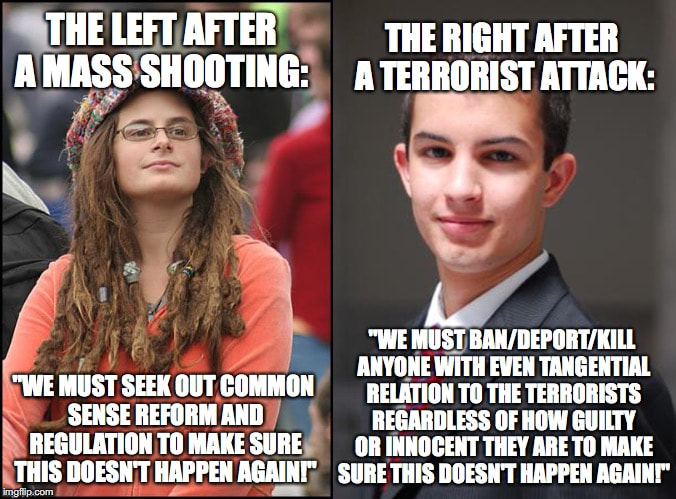
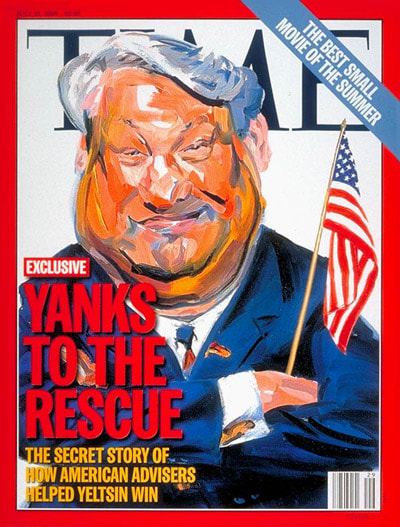
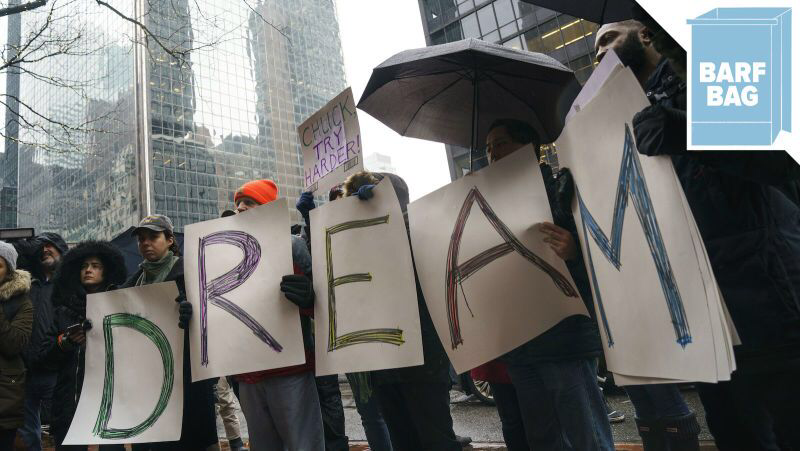
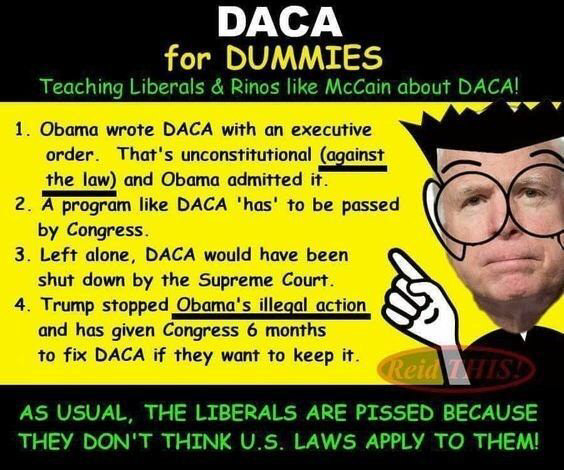





 Let’s close with a few random observations.
Let’s close with a few random observations.
